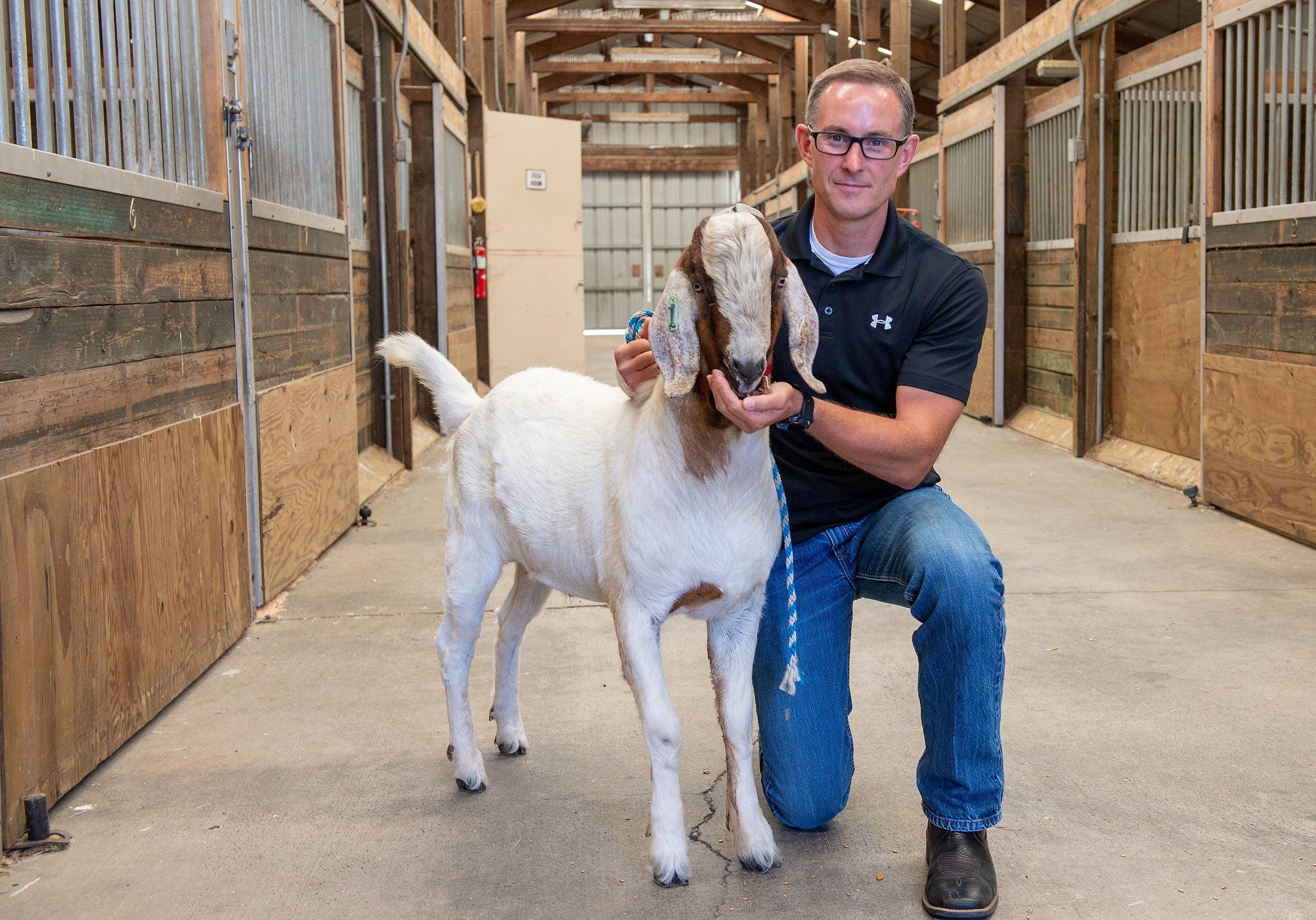Cloned testicles allow infertile goats to become ‘super dads’
Researchers believe gene-edited livestock fathering ‘elite’ offspring could boost food production, writes Adam Forrest


Scientists have created a series of goats, pigs and cattle whose testicles are effectively cloned from a different male in a bid to create a new breed of “super dads” in the animal kingdom.
The farmed animals were all born sterile, but began producing sperm after a gene-editing tool allowed researchers in the UK and US to inject sperm-producing cells taken from specially-chosen donor animals.
It means the gene-edited goats, pigs and cattle could serve as viable “surrogate sires” – carrying only desirable genetic traits as they father the offspring of their “elite” donors.
The researchers claim the development could speed up the spread of desirable characteristics in livestock and improve food production for a growing global population.
Additionally, it would give breeders in remote regions better access to genetic material of elite animals from other parts of the world. It would also allow more precision breeding in animals – such as goats – where using artificial insemination is difficult.
Jon Oatley, a reproductive biologist at Washington State University (WSU)’s College of Veterinary Medicine who was involved in the work, said: “With this technology, we can get better dissemination of desirable traits and improve the efficiency of food production.
“This can have a major impact on addressing food insecurity around the world. If we can tackle this genetically, then that means less water, less feed and fewer antibiotics we have to put into the animals.”
The gene-editing process employed in the study published in the Proceedings of the National Academy of Sciences journal seeks to bring about changes within an animal species that could occur naturally, such as infertility.
The study is the result of six years of collaborative work among researchers at WSU, Utah State University, University of Maryland and the Roslin Institute at the University of Edinburgh.
The scientists used the gene editing tool CRISPR-Cas9 on mice, pigs, goats and cattle that lacked a gene called NANOS2 which is specific to male fertility. The sperm the so-called “surrogate sires” then produced carried only the genetic material of the selected donor animals.
In the study the surrogate mice fathered healthy offspring who carried the genes of the donor mice. However, the larger animals have not been bred yet, and Prof Oatley’s lab is refining the stem cell transplantation process before taking that next step.
Professor Bruce Whitelaw of the Roslin Institute said the study provides a powerful proof of concept. “This shows the world that this technology is real. It can be used. We now have to go in and work out how best to use it productively to help feed our growing population.”
Scientists have been searching for a way to create to overcome the limitations of selective breeding and artificial insemination, tools which require either animal proximity or strict control of their movement. In many cases they require both.
The study suggests that donors and surrogates do not need to be near each other since either frozen donor sperm or the surrogate animal itself can be shipped to different places.
The technology has the potential to help food supply in the developing world, where herders still have to rely on selective breeding, said Irina Polejaeva, a professor at Utah State University.
She explained: “Goats are the number one source of protein in a lot of developing countries. This technology could allow faster dissemination of specific traits in goats, whether it’s disease resistance, greater heat tolerance or better meat quality.”
According to the researchers, the surrogate sires technology could also open up a new option for genetic conservation of endangered species, whose dwindling numbers leave animal communities isolated from each other, limiting their genetic diversity.
The Nuffield Council on Bioethics said it was still examining some of the ethical issues raised by gene-editing techniques in livestock.
“Whether and to what extent genome editing can and should be deployed outside the research setting will depend on further research and development progressing in alignment with societal values and interests that have, in many cases, yet to be clearly defined,” director Hugh Whittall told the BBC.
The scientists behind the new research said a lot of work needs to be done outside the lab before the modifications can be made to the animals.
Prof Oatley said: “Even if all science is finished, the speed at which this can be put into action in livestock production anywhere in the world is going to be influenced by societal acceptance.
“By working with policymakers and the public, we can help to provide information assuring the public that this science does not carry the risks that other methods do.”
Join our commenting forum
Join thought-provoking conversations, follow other Independent readers and see their replies
Comments

Bookmark popover
Removed from bookmarks